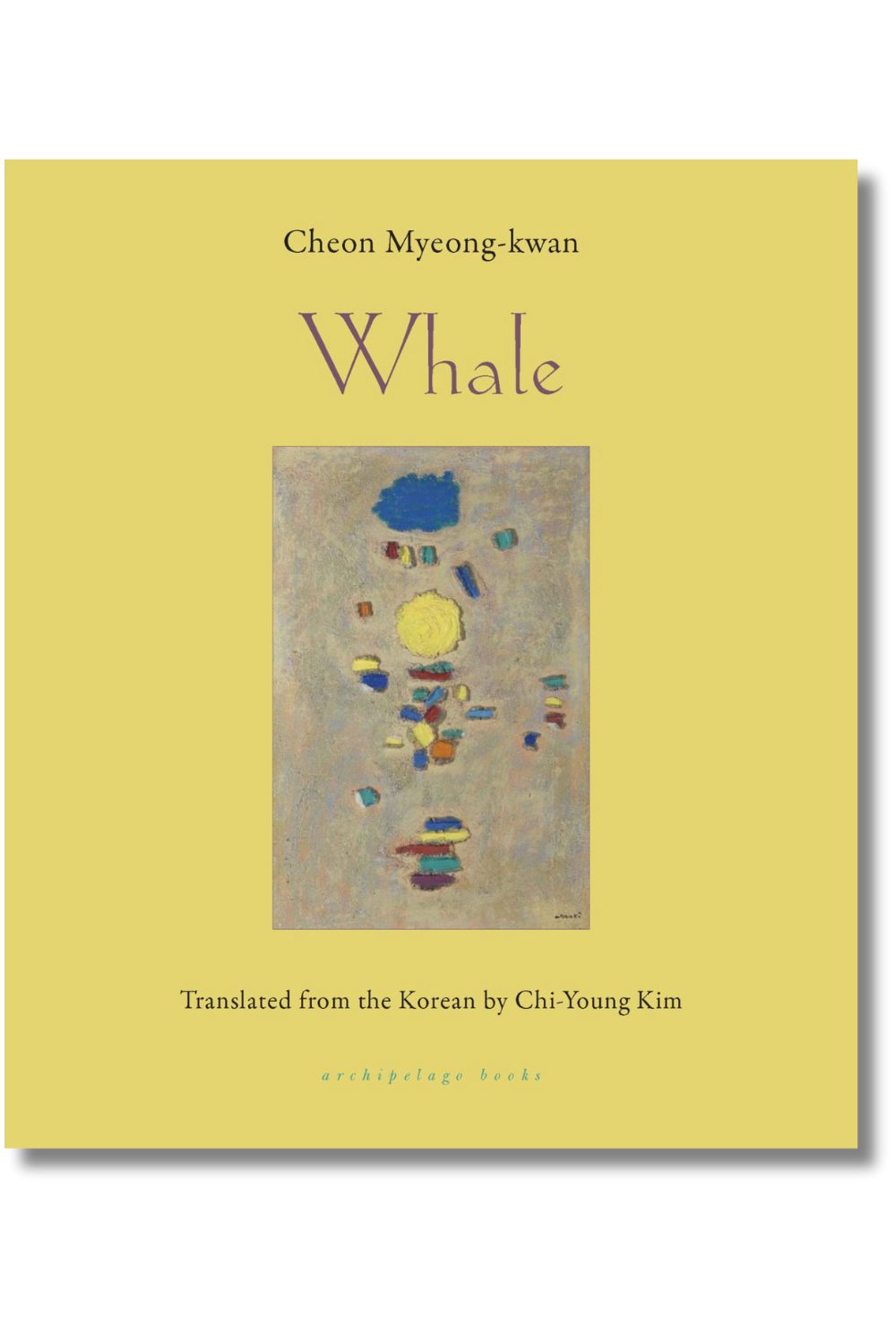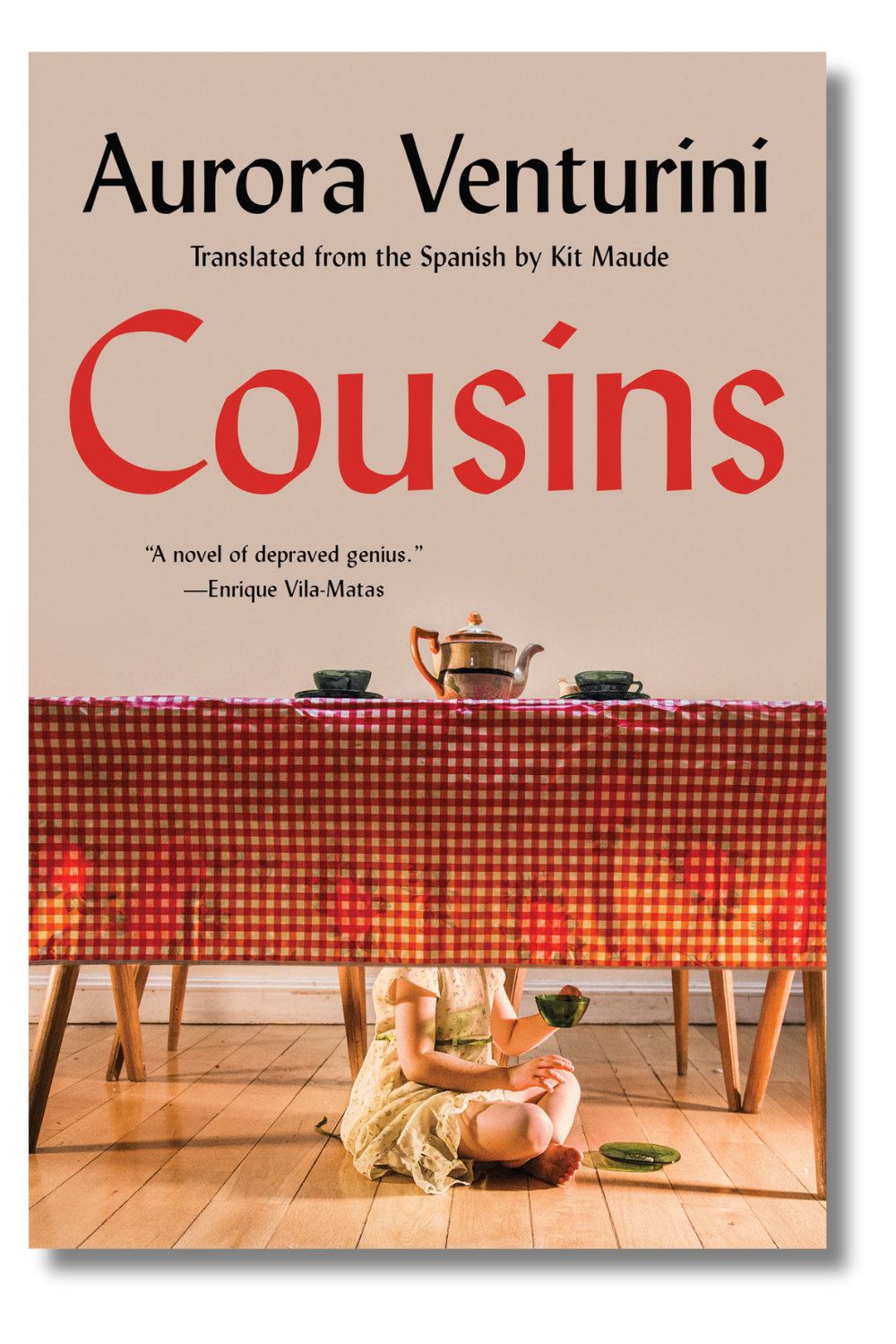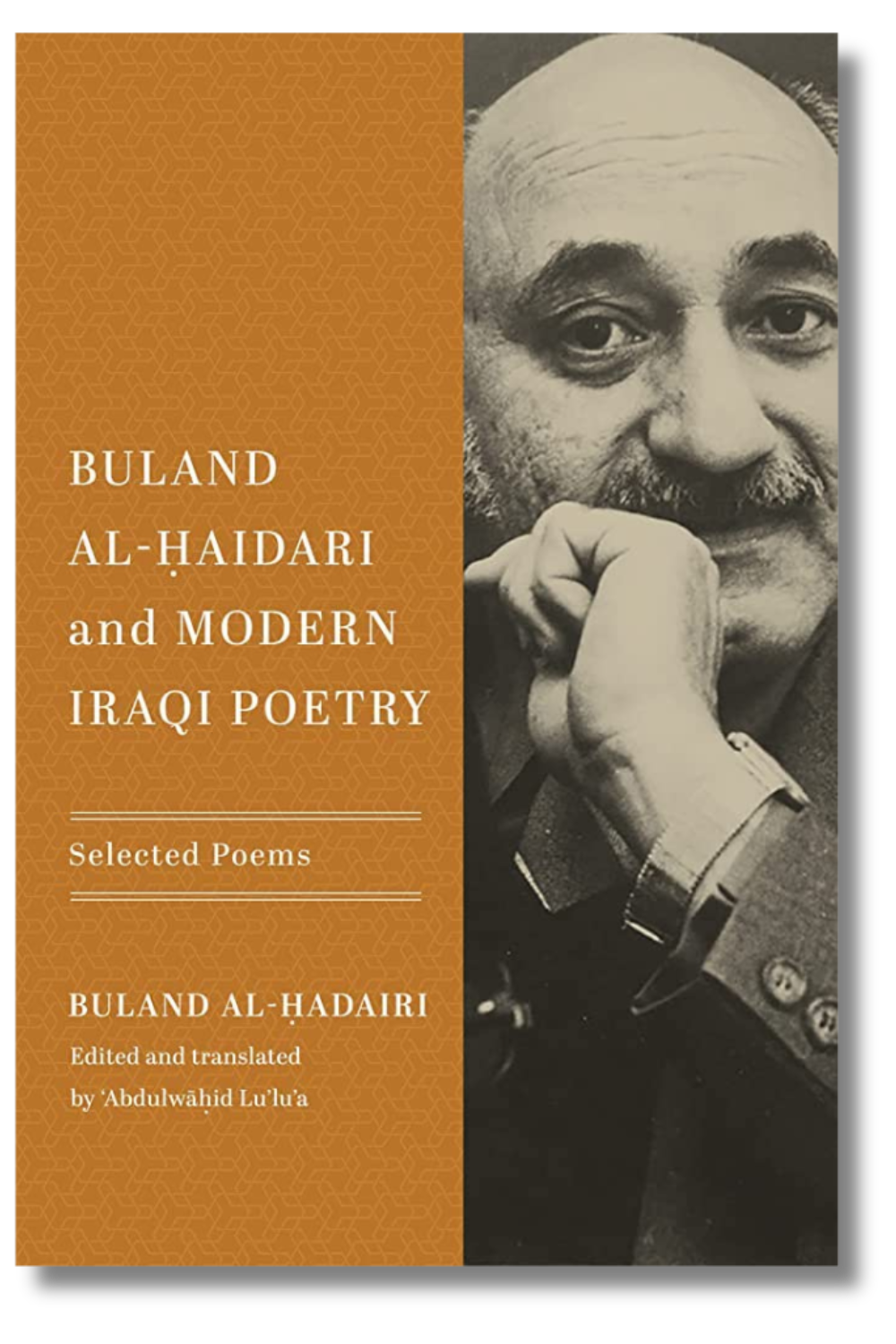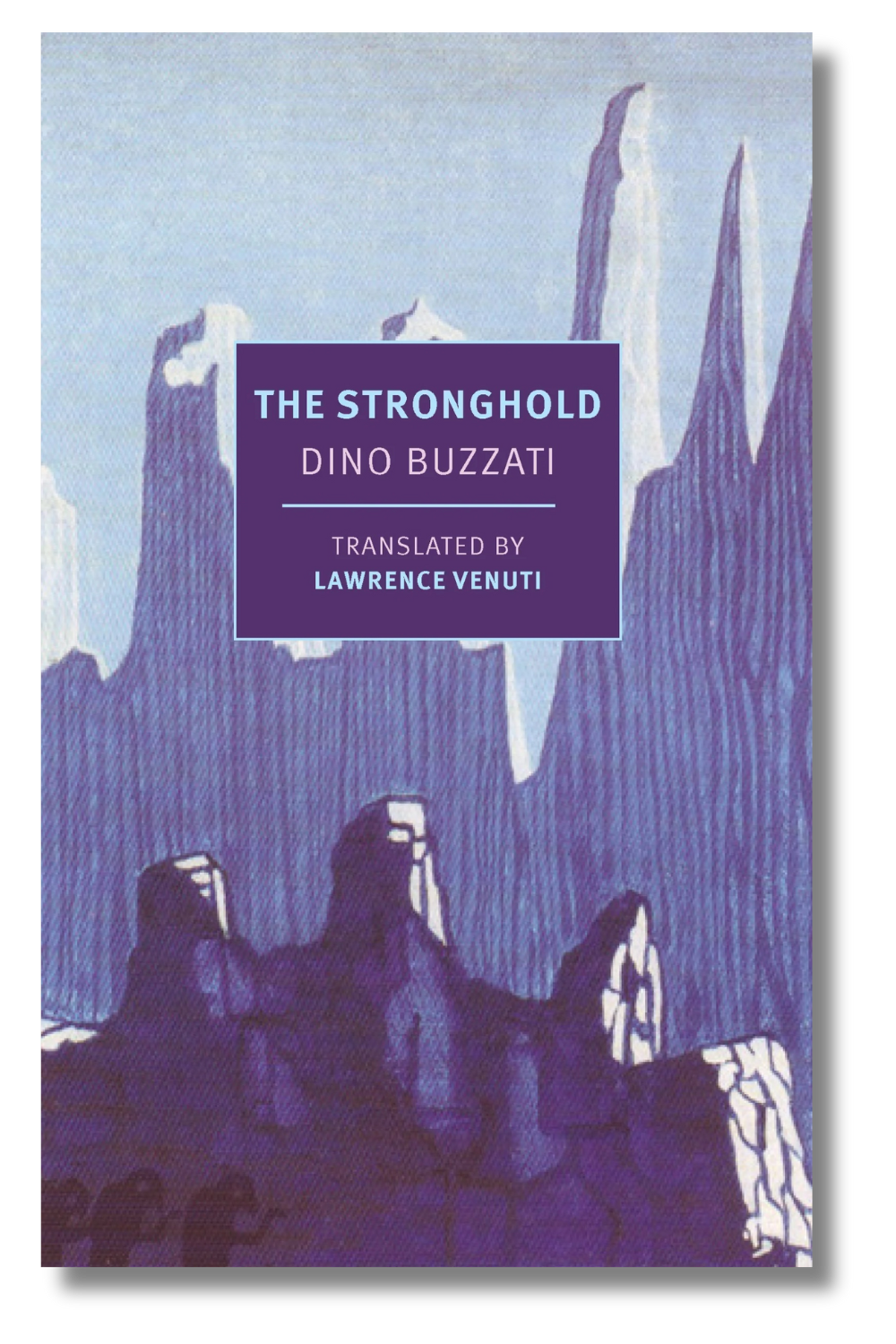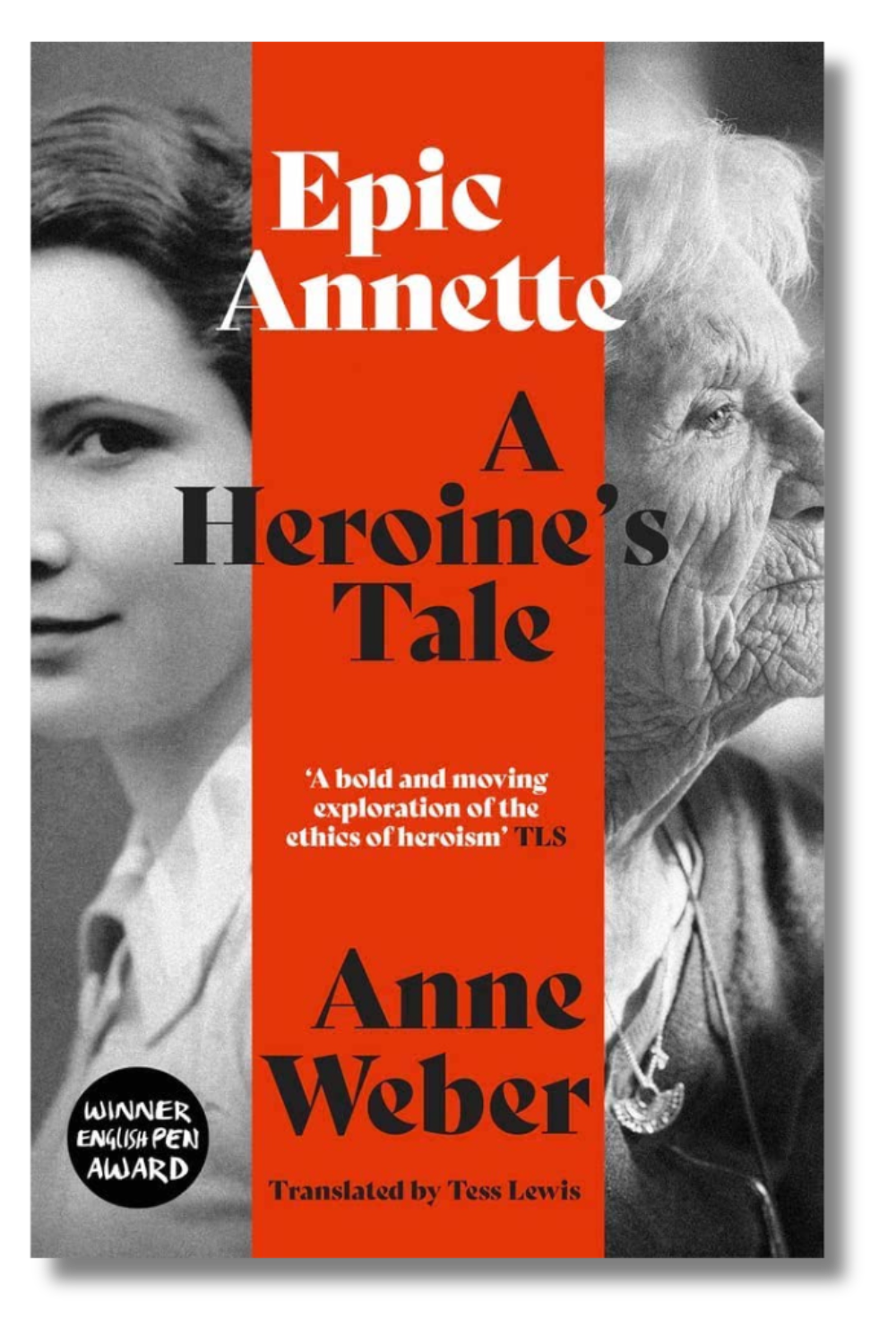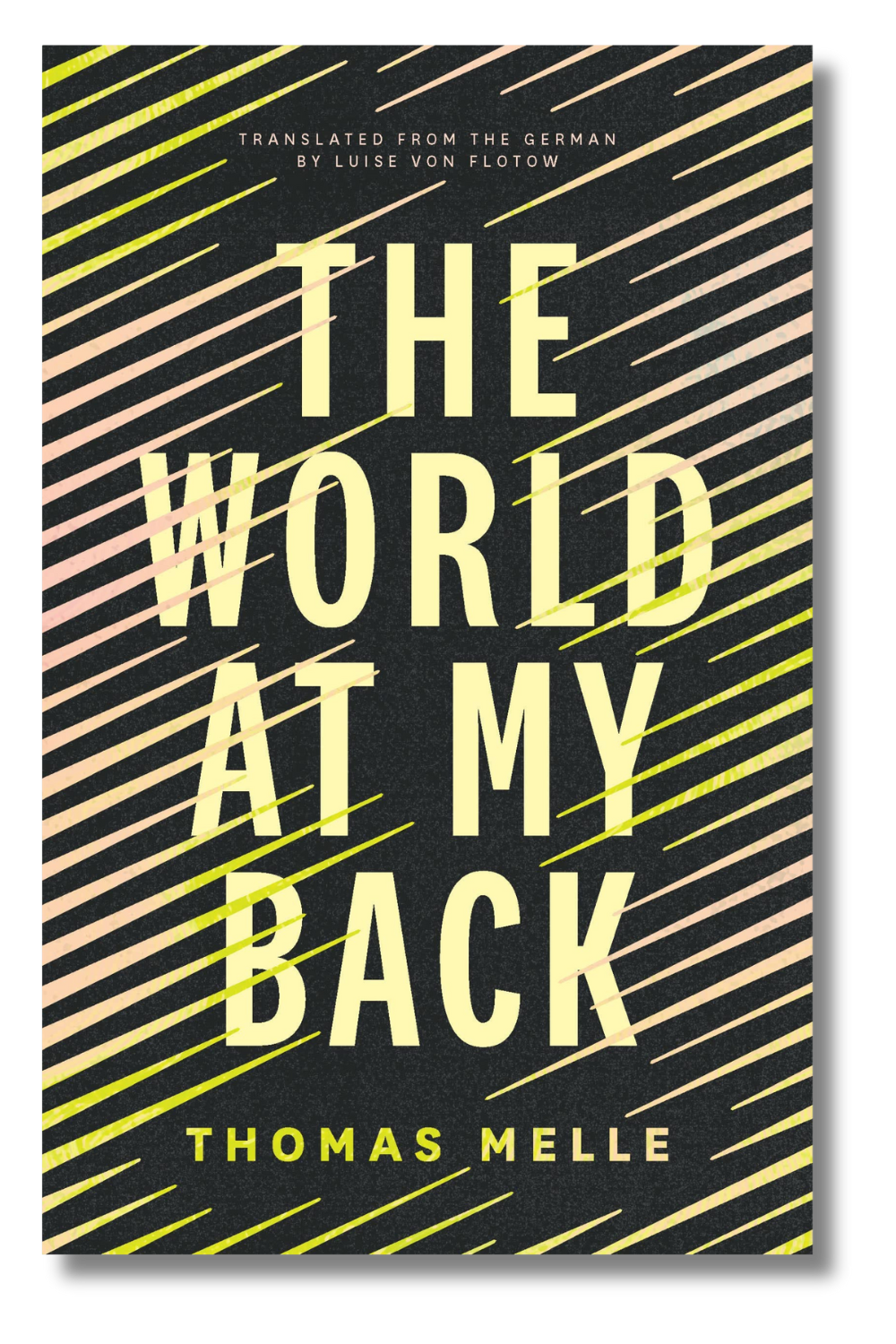From Archipelago Books | Whale by Cheon Myeong-kwan, translated from the Korean by Chi-Young Kim | Fiction | 400 pages | ISBN 9781953861146 | US$22.00
What the publisher says: “Whale, set in a remote village in South Korea, follows the lives of three linked characters: Geumbok, an extremely ambitious woman who has been chasing an indescribable thrill ever since she first saw a whale crest in the ocean; her mute daughter, Chunhui, who communicates with elephants; and a one-eyed woman who controls honeybees with a whistle.”
What Tony’s Reading List says: “While this may not be immediately apparent to some Anglophone readers, Whale is another of those Korean books casting a critical eye over the period after the end of the Korean War. It was a time of an economic boom, a kind of Wild West era in which there was a chance to strike it rich for those prepared to dream big enough. This is all concentrated here in the fate of the tiny village of Pyeongdae, and its growth from a hamlet surrounded by mountains to a thriving population center.”
What I say: Pitched in tone somewhere between Katherine Dunn’s Geek Love and Salman Rushdie’s Shame, Whale is both a surreal story of a haunted (literally and metaphorically) family and a bizarre look at one nation’s history. Blending betrayals worthy of film noir with harrowing stories of corruption and abuses of power, Whale shifts wildly in tone but is never less than compelling. Add in some visceral imagery and you have a compelling whole.
From Soft Skull Press | Cousins by Aurora Venturini, translated from the Spanish by Kit Maude | Fiction | 208 pages | ISBN 9781593767297 | US$17.95
What the publisher says: “Cousins, widely regarded as Venturini’s masterpiece, is the story of four women from an impoverished, dysfunctional family in La Plata, Argentina, who are forced to suffer through a series of ordeals, including illegal abortions, miscarriages, sexual abuse, disfigurement, and murder, narrated by a daughter whose success as a painter offers her a chance to achieve economic independence and help her family as best as she can.”
What Kirkus Reviews says: “An enigmatic young Argentinian woman with a quirky command of language, Yuna Riglos narrates Venturini’s bizarre and mordant tale of misogyny and misunderstanding. She and her sister, Betina, are being raised by a strict schoolteacher mother whose husband left the household years earlier.”
What I say: There’s something almost gothic in the way Aurora Venturini’s Cousins unfolds, from the repression (both emotional and bodily) that many characters experience to the horrific acts taking place in semi-private. It’s a book whose characters carry trauma and abuse with them—but also a work in which art allows for both liberation and revelation. Mariana Enríquez’s introduction to this edition also provides a welcome sense of Venturini’s long career.
From Notre Dame Press | Buland Al-Ḥaidari and Modern Iraqi Poetry: Selected Poems by Buland Al-Ḥaidari, translated from the Arabic by ʻAbdulwāḥid Lu’lu’a | Poetry | 186 pages | ISBN 9780268205317 | US$45.00
What the publisher says: “Buland Al-Ḥaidari might fairly be considered the fourth pillar holding up the dome of modern Arabic poetry. Alongside his famous contemporaries Nāzik al-Malā’ika, Badre Shākir Al-Sayyāb, and ‘Abdulwahhāb Al-Bayyāti, Al-Ḥaidari likewise made significant contributions to the development of twentieth-century Arabic poetry, including the departure from the traditional use of two-hemistich verses in favor of what has been called the Arabic ‘free verse’ form.”
What I say: Editor and translator ʻAbdulwāḥid Lu’lu’a notes in his foreword that this collection offers “a picture of the literary and poetic atmosphere in Baghdad and Iraq from the mid-1940s to the close of the twentieth century.” The poems in this collection, spanning decades, work as a kind of microcosm of history. The mournful tone of many of these works is also frequently moving, as in these lines from “Return to Hiroshima”: “Should I go home? / To whom? / To a dead child, / To a heap of rocks turned into ruins, / Sobbing in silence?”
From NYRB Classics | The Stronghold by Dino Buzzati, translated from the Italian by Lawrence Venuti | Fiction | 216 pages | ISBN 9781681377148 | US$17.95
What the publisher says: “Buzzati is one of the great Italian writers of the twentieth century, renowned for his fantastical imagination and for a touch that is as lyrical as it is light. The Stronghold, previously translated as The Tartar Steppe, is his most celebrated work, a book that has been read as a veiled attack on Mussolini’s fascist militarism, a prophetic allegory of the Cold War, and an existentialist fable.”
What Publishers Weekly says: “Giovanni Drogo, a lieutenant in the Italian army, is given his first assignment at the remote Fortezza Bastiani, nestled between mountains and desert. His solitary horseback ride away from his childhood home fills him with increasing anxiety as he travels further from civilization. Drogo has high hopes for a decorated career, but at Fortezza Bastiani, he discovers a strange phenomenon: everyone there is convinced the outpost will one day save the Italian kingdom from the Tartars, a legendary enemy from the north that threatens the Fortezza.”
What I say: The Stronghold can feel at times like a deconstruction of one man’s frustrations, while at others it evokes the ghosts of a nation’s repressed anxieties. The way in which protagonist Giovanni Drogo witnesses his life vanish before his eyes is both surreal and effective, even as the mysteries of the remote facility where he spends much of his life take the novel into more archetypal territory. In Lawrence Venuti’s translation, Dino Buzzati’s prose easily shifts from tactile to hallucinatory and back again.
From the Indigo Press | Epic Annette: A Heroine’s Tale by Anne Weber, translated from the German and French by Tess Lewis | Poetry | 216 pages | ISBN 9781911648451 | UK£15.00
What the publisher says: “Epic Annette is the extraordinary true story of Annette Beaumanoir: brilliant and fierce, she was a medical student living in a world at war who, at nineteen years old, joined the French Resistance and saved the lives of two Jewish children in Paris on the eve of their deportation to the camps.”
What Kai Maristed at The Arts Fuse says: “Tess Lewis’s translation is both pitch-perfect and exact. The voice of Epic Annette rolls through history as a jaw-dropping contemporary adventure tale, now high-flown, now colloquial, with plenty of off-stage commentary from the omniscient narrator—she is unnamed and indistinct, like a Greek chorus, yet a character in this tale.”
What I say: On its own, the history covered in Epic Annette would make for fascinating reading: the book’s subject, Annette Beaumanoir, was enmeshed in both the French Resistance and the struggle for Algerian independence. Anne Weber’s decision to tell Beaumanoir’s story as a work of epic poetry adds yet another layer to the proceedings. Just as the juxtaposition of Beaumanoir’s areas of activism draws comparisons between both, so too does the use of the epic form raise questions about the nature of heroism, past, and present.
From Biblioasis | The World at My Back by Thomas Melle, translated from the German by Luise von Flotow | Nonfiction | 312 pages | ISBN 9781771964517 | US$22.95
What the publisher says: “Vulnerable and claustrophobic, shattering and profoundly moving, Thomas Melle’s The World at My Back is a book dedicated to the impossibility of reclaiming what has been lost, its lines both a prayer and reminder that, on the other side of madness, other possibilities await.”
What Rob Doyle at the New York Times says: “Such books as The World at My Back recount experiences of total frenzy from a vantage point of clarity and calm. What makes Melle’s stand out is that he seems aware of how blackly funny the intimate details of psychotic breakdown can be . . . Melle succeeds exceptionally well in conveying catastrophic loss while commanding the reader’s attention.”
What I say: The World at My Back is in no way an easy read; instead, it’s a candid and frequently harrowing chronicle of its author’s struggles with mental health over the years, and the cyclical nature of its effect on his life. In von Flotow’s translation, this book becomes a source of insight into what its author went through—and what he gained and lost along the way.
Copyright © 2023 by Tobias Carroll. All rights reserved.
Looking for more reading suggestions? Check out Tobias Carroll’s recommendations from last month.
Disclosure: Words Without Borders is an affiliate of Bookshop.org and will earn a commission if you use the links above to make a purchase.









